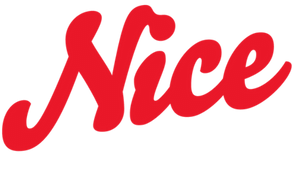Interviewing people on camera can take a bit of skill and preparation (there are often some nerves and a bit of rambling involved) so we’ve put together some helpful tips to enable you to get the best from your interviewee and the most out of the interview.
An important point to remember is that the power of a video interview comes from the spontaneity of the response. The art of the interviewer is getting the content you want, while keeping the interviewee relaxed, fresh and spontaneous while speaking on camera. So how do we do this? As with any sort of video production, it’s all about planning.
Learning Design
First – think about the learning design and what effect you are trying to achieve from the video interview. Are talking heads the right solution?
Here’s what they’re good for:
- High level points, (this is tabloid not broadsheet).
- Believability – hearing the words from the horse’s mouth is what makes them believable. If you want to make a video aimed at new joiners, hearing and seeing their new colleagues talk about the job will be more believable than an address from the CEO.
Of course, this believability thing is entirely dependent on getting the interviewees to give genuine testimony and to deliver it in a relaxed manner. This is a subtle art, but here are some tips:
- Start by choosing interviewees who are willing to talk – don’t put the pressure on – the results are unlikely to be good.
- Choose people who know what they are talking about – of course!
Preparation
Never, if you can possibly avoid it, allow your interviewees to know the exact questions you are going to pose. This will stop them rehearsing their answers. Rehearsed answers aren’t spontaneous, so they seem less truthful, and they don’t have that same engaging energy.
Of course, people can find it a bit unnerving to be invited to talk on camera without any idea of what it’s about. The solution is to give them just enough information to allay their fears. You might tell them the general subject matter. Or, if the subject is the sort of thing that takes a little thought, give them more specific subject information, but don’t reveal the actual questions you will be asking.
An exception to this would be if you are asking them a purely factual question that you need a succinct answer – such as “Tell me your career history in a couple of sentences”.
Plan the high level points you want your interviewees to cover and design your questions accordingly.
Some tricks of the trade
- Start the interview with a “placebo” question to get them in the mood.
- Have several subtly different versions of the same question ready to go.
- Make sure you know just enough about the subject yourself so you can improvise extra questions.
- Ask your interviewee to repeat the premise of the question in their answer – for example “What did you have for breakfast?” “For breakfast I ate….” Etc – This makes it easier to edit together the content without added commentary.
- Keep eye contact as much as possible and don’t make a sound while the interviewee is talking. It’s all too easy to make an “uh-huh” type of response that will mess up your nice clean soundbite.
- Treat your interviewees with respect and empathy. If they’re having difficulty answering, don’t pile on the pressure. Tell them it’s fine and use a tactic such as moving to a simpler question and returning to the hard one later.
Really, you shouldn’t be in a situation in which there is too much pressure on an interviewee, because for one thing you can do lots of takes, and unless they’re some sort of rare expert, you’ll have lined up several people to talk to on this subject.
Video interviewing involves a bit of pot luck, but if you get enough content you’ll have some golden nuggets amongst the inevitable rubbish.







